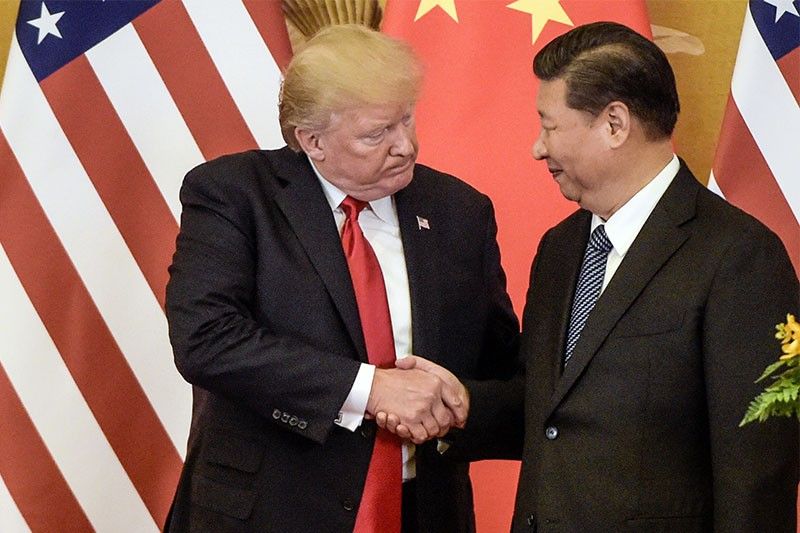Destined for war


China and the United States are currently on a collision course for war – unless both parties take difficult and painful actions to avert it. This is the basic theme of the book Destined for War: Can America and China Escape Thucydides’s Trap? written by Graham Allison in 2017. This is not a book about China. It is about the impact of a rising China on the United States and the global order.
Ellison writes: “For seven decades since World War II, a rules-based framework led by Washington has defined world order, producing an era without war among great powers. Most people now think of this as normal. Historians call it a rare “Long Peace”. The First World War ended in 1918; and, just 21 years later, in 1939, the Second World War started. Today, an increasingly powerful China is unravelling this long period of peace, throwing into question the peace that the past two to three generations have taken for granted.
Since Elllison wrote the book, Thucydides Trap has become a widely quoted geopolitical term. This term refers to a situation when a rising power threatens to displace a ruling power. He says: “As a rapidly ascending China challenges America’s accustomed predominance, these two nations risk falling into a deadly trap first identified by the ancient Greek historian Thucydides. Writing about a war that devastated the two leading city states of classical Greece two and a half millennia ago, he explained: “It was the rise of Athens and the fear that this instilled in Sparta that made war inevitable.”
A recent Harvard Thucydides’s Trap Project reviewed the past 500 years of world history and identified 16 cases in which an ascending power challenged an established power. Twelve of these rivalries resulted in war. Two of the four rivalries that did not end in a war were in the last century. The first was between the United States and the Soviet Union. The second between UK and France with Germany on the other side.
The book is divided into four parts. Part One is “The Rise of China”. Part Two is “Lessons From History” which essentially discusses the 16 cases of world power rivalries in the past 500 years. Part Three is “A Gathering Storm”and is the main part of the book. Part Four is more hopeful and is titled “Why War is Not Inevitable” and includes 12 clues for peace.
Ellison writes that the United States and China can avoid war if they internalize two difficult truths. First, the current trajectory “...war between the US and China in the decades ahead is not just possible, but much more likely than currently recognized. Indeed, on the historical record, war is more likely than not.” Essentially, if leaders in Washington and Beijing keep on doing what they have done in the past decade and what they are still doing, the US and China will almost certainly wind up at war. However, war is not inevitable if both powers study the four cases when the great power rivalries did not end in war. Ellison writes about these lessons in his chapter “Twelve Clues for Peace”.
Most of the book, however, does not offer any room for optimism. For example, after writing that war is not inevitable in the book’s preface, Ellison writes, in the same section a comparison between the two leaders – Donald Trump and Xi Jinping. He says that as protagonists to be number one, the two share portentous similarities. Both:
• Are driven by a common ambition: to make their nation great again.
• Identify the nation ruled by the other as the principal obstacle to their dream.
• Take pride in their own unique leadership capabilities.
• See themselves playing a central role in revitalising their nation.
• Have announced daunting domestic agenda that call for radical changes.
• Have fired up populist nationalist support to “drain the swamp” of corruption at home and confront attempts by each other to thwart their nation’s historic mission.
Ellison has a long narrative quoting Lee Kuan Yew on “What China Wants”. He writes: “At the core of these national goals is a civilizational creed that sees China as the center of the universe. In the Chinese language, the word for China, Zhong Guo, means Middle Kingdom. Middle refers not to the space between other rival kingdoms, but to all that lies between heaven and earth. “As Lee (Kuan Yew) summarized the world view shared by hundreds of Chinese officials who sought his advice (including every leader since Deng Xiaoping) they ‘recall a world in which China was dominant and other states related to them as supplicants to a superior, as vassals came to Beijing bearing tribute.”
Could a collision between American and Chinese warships in the South China Sea, a drive toward national independence in Taiwan, jockeying between China and Japan over islands on which no one wants to live, or a spiralling economic dispute spark a war between China and the US that neither want?
After reading the book, the unfortunate answer seems that the inevitability of conflict is higher than the prospect of peace.
Creative writing classes for kids and teens
Young Writers’ Hangout on July 20 with Gabriela Lee (1:30 pm-3pm; stand-alone sessions) at Fully Booked BGC. For details and registration, email [email protected].
Email: [email protected]
- Latest
- Trending


























